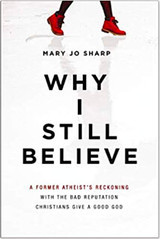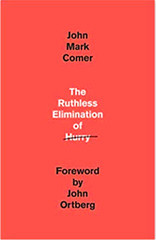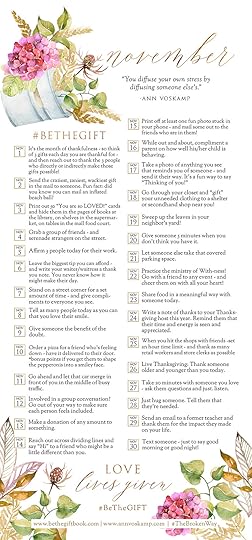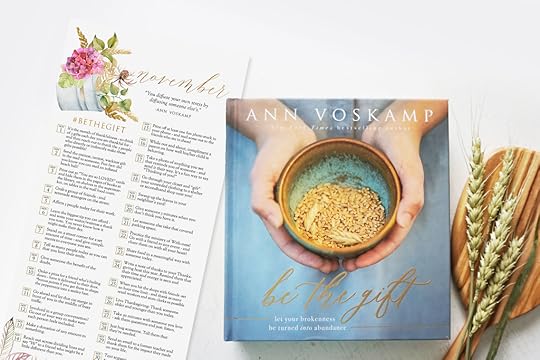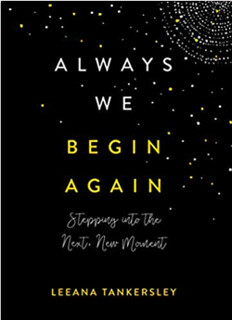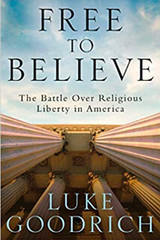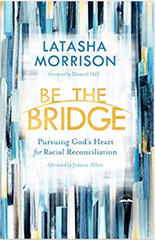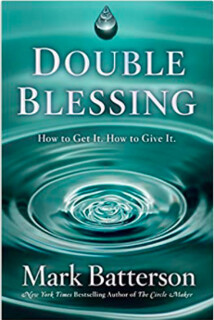Ann Voskamp's Blog, page 92
October 30, 2019
Instead of Lacking Trust: How to Have a Different Kind of Trust
If I ask a person why they aren’t in church today, many may say it’s because of the hypocrisy of Christians. For Mary Jo Sharp, this objection is personal, painful, and forms the background of her latest book, Why I Still Believe. Though she’s an apologist and professor, her experiences in the church have driven her to question if Christianity is true…or even worth it. Having been drawn to God through the beauty of His creation, but seeing the ugliness of human failings, she’s heartbroken that what she found in church didn’t match what she longed for. Mary Jo calls her journey an “anti-deconversion” story about finding hope and answers in the grace of truth of Jesus. It’s a grace to welcome Mary Jo to the farm’s front porch today…
My husband isn’t good at recognizing the difference in women’s clothing sizes. However, he is extremely thoughtful about washing, folding, and putting away laundry.
When these two characteristics come together, it can be quite amusing.
Roger would fold the laundry and put the items in our dresser drawers. Then, in the morning, I would open my underwear drawer and find my preteen daughter’s set of underwear staring back at me.
“Roger-dodger?” “Yes?”
“Where are you? I need to show you something.”
“I’m in the kitchen.”
I sauntered into the kitchen with my daughter’s underwear halfway up one leg over my clothing, a completely serious look on my face. “So, I think I’ll wear these today. I found them in my drawer. What do you think?”
Roger smiled. “Oh, that’s not your underwear, is it?” “No, but I’m flattered that you think I’d fit into these.”
It wasn’t just an underwear issue. Roger’s clothing-size judgment skills extended to all pieces of my wardrobe. Over the years, I’ve found my shirts in Emily’s room and my jeans in Roger’s closet. I routinely engage in impromptu fashion shows to demonstrate the error.
Now, suppose for a moment that I didn’t recognize the error before I put an item on. Assume that I just put on the under- wear and then wondered why I felt uncomfortable.
For me, that is what “churchy faith” felt like. Trying to put on my church’s cultural expression of faith made me feel like an imposter, like I was wearing someone else’s Jesus-believing clothes.
Yet I had no idea how to find a genuinely fitting faith. And so doubt began to creep into my soul.









However, my ability to pinpoint the problem was as bad as Roger’s ability to determine whose underwear was whose. I felt lost in this endeavor.
“I initially viewed doubt as an enemy of faith.”
I had no training from the church in how to handle cantankerous church people, much less how to handle doubt about God’s existence stemming from those same church people.
So what if I’d read a book that gave me evidence for the claims of Christianity? I still had concerns and questions.
Further aggravating the issue, I felt caged by my circumstances, for I determined there was no person I could truly trust to discuss this matter with, especially not as a staff wife. Plus, the few times I had opened up about serious life issues, I had been burned by the fiery arrows of gossip and marginalization.
The Christians I had met so far taught me (albeit indirectly) to hide my problems and my doubts.
Due to my experiences, I initially viewed doubt as an enemy of faith.
It took me a long time to realize that maybe doubt could be viewed as part of growing up.
“It was not a lack of any trust, just a different kind of trust. It was a growing, maturing faith and trust.”
As a child, though I liked to argue, there was a time when I just trusted my parents and their authority in my life.
Of course, being strong-willed, I had my moments of rebellion. But for the most part I trusted and obeyed my parents.
In my later childhood and early teenage years my knowledge of the world began to expand, and I began to have doubts about things my parents said and believed.
I often questioned them or pushed back on them. My parents never assumed any ill will or lack of love as the reason for my questions. They knew that I was still young and navigating my way in the world.
I was outgrowing my old clothes of belief. My childhood faith and trust in my parents didn’t fit me anymore, for I needed to develop a deeper kind of faith and trust.
It was not a lack of any trust, just a different kind of trust. It was a growing, maturing faith and trust. I needed appropriately sized clothing for my current age.
When I playfully paraded around the house in my daughter’s clothing, I didn’t expect to continue to wear that clothing the rest of the day.
Neither should I want to parade around in my initial thoughts about God as I get older as a Christian. However, I was donning those youthful Christian belief clothes.
“I didn’t really understand how to bring together the reality that while God’s character doesn’t change, mine was changing.”
This lack of maturing in my understanding of God made a substantial impact on me for ill.
I didn’t really understand how to bring together the reality that while God’s character doesn’t change, mine was changing. In fact, everything around me was changing.
All these changes impacted my thoughts, ideas, and character.
Plus, as I’ve aged, I have seen much more disease, suffering, death, and evil. Ideas, such as God’s goodness, that once seemed rather basic or easy to accept, now had to contend with my experiences of the wretchedness of human evil.
Acceptance of God’s goodness took much more understanding, and so the questions came.
However, should my questioning be equated to an ill will or lack of love toward God? No.
While I can certainly pervert or manipulate questioning in several ways, ill will is not a necessary propertyof questioning. Even Scripture reminds us to “have mercy on those who doubt” (Jude 1:22).
“We’re all learning how to trust God, from the newest to the oldest of believers.”
Rather, what I needed, and what the church has always needed, is a community dedicated to growing older and more mature in faith together.
We’re all learning how to trust God, from the newest to the oldest of believers.
In an environment where doubt and questioning are viewed as a part of human development, faith and trust can flourish rather than diminish.
We need a place where we can learn, make mistakes, and cultivate an appropriate faith-wardrobe of a maturing believer in God.
A former atheist who came to faith, Mary Jo Sharp has experienced two worlds of American culture: the post-Christian culture of the Pacific Northwest and the evangelical culture of the Bible Belt. She first encountered apologetics in her own spiritual search while seeking answers. Now Mary Jo is an assistant professor of apologetics at Houston Baptist University and the founder and director of Confident Christianity Apologetics Ministry.
For those who feel the ever-present tension between the beauty of salvation and the dark side of human nature, Why I Still Believe is a candid and approachable case for believing in God when you really want to walk away.With fresh and thoughtful insights, this spiritual narrative presents relevant answers to haunting questions like: Isn’t there too much pain and suffering to believe? Is it okay to have doubt? What do I do with it? Does atheism better explain the human experience? How does the truth of Christianity matter when the behaviors of Christians are reprehensible?
At once logical and loving, Mary Jo reframes the gospel as it truly is: the good news of redemption. God’s story is not only powerful but also wonderous in its apologetic evidence. With firmly grounded truths, Why I Still Believe is an affirming reminder that the hypocrisy of Christians can never negate the transforming grace and truth of Christ.
[ Our humble thanks to Zondervan for their partnership in today’s devotion ]

October 28, 2019
How Hurry is Incompatible with Love
Five years ago, John Mark Comer was leading a mega-church, working insane hours, and addicted to his phone, yet he knew something was off in his soul. The aha moment was when he realized the solution to this problem wasn’t about more time, but ruthlessly eliminating hurry from his life. John Mark understood that hurry is incompatible with the love, joy, and peace that are right at the center of Jesus’ vision of life in the kingdom of God. We pride ourselves on keeping up, running faster, doing more, and being always available. Yet if a fast-paced life is the goal, why was Jesus never in a hurry? The Ruthless Elimination of Hurry is a manifesto to slow down, savor each day, and love deeper rather than live faster. Discover how an unhurried life can draw you closer to God, to others, and to your own soul. It’s a grace to welcome John Mark to the farm’s front porch today…
The philosopher Dallas Willard once called hurry “the great enemy of spiritual life in our day,” and urged followers of Jesus to “ruthlessly eliminate hurry from your life.”
When I first came across his anti-hurry vision of life in Jesus’ kingdom, it struck a deep chord in my soul.
And yet his culprit for the “great enemy of spiritual life” is not what I would expect.
“Both sin and busyness have the exact same effect—they cut off our connection to God, to other people, and even to our own soul.”
I live in one of the most secular, progressive cities in America, but if you were to ask me, What is the greatest challenge to your spiritual life in Portland? I’m not sure what I’d say – politics? Postmodernity? Progressive theology?
How would you answer that question?
I bet very few of us would default to “hurry” as our answer.
And yet the more I think about it, the more I agree.
Corrie Ten boom once said that if the devil can’t make you sin, he’ll make you busy.
Her logic is sound: both sin and busyness have the exact same effect—they cut off our connection to God, to other people, and even to our own soul.
Often, this isn’t how we think of “the devil” and his agenda in our life.
But in my experience as a pastor, the number one threat to people’s spiritual life is simply a lack of time.
People are just too busy to live emotionally healthy and spiritually rich and vibrant lives.
What do people normally answer when you ask the customary, How are you?
Oh good—just busy.








Granted, there is a healthy kind of busyness where your life is full with things that matter, not wasted on empty leisure or trivial pursuits. By that definition, Jesus himself was busy.
The problem isn’t when you have a lot to do; it’s when you have too much to do, and the only way to keep the quota up is to hurry.
“The problem isn’t when you have a lot to do; it’s when you have too much to do, and the only way to keep the quota up is to hurry.”
And hurry is incompatible with life in Jesus’ kingdom.
Think about it: What has the highest value in the kingdom economy? Easy: love. Jesus made that crystal clear.
But love is painfully time consuming. All parents know this, as do all lovers, and most long-term friends. There’s no shortcut to love. No life hack. No killer app.
Hurry and love are oil and water: they simply do not mix.
All of my worst moments as a father, a husband, a pastor, even as a human being are when I’m in a hurry—late for an appointment, behind on my unrealistic to-do list, trying to cram too much into my day. I ooze anger, tension, a critical nagging—the antitheses of love.
If you don’t believe me, next time you’re trying to get your type B wife and three young, easily distracted children out of the house, and you’re running late (a subject on which I have a wealth of experience), just pay attention to how you relate to them.
Does it look and feel like love? Or is it far more in the vein of agitation, anger, a biting comment, a rough glare?
Hence, in the apostle Paul’s definition of love, the first descriptor is “patient.”
There’s a reason people talk about “walking with God,” not “running” with God. It’s because God is love.
In his book Three Mile an Hour God, the late Japanese theologian Kosuke Koyama put this language around it:
“The more present we are to the now, the more grateful we are for what is, the more we tap into joy.”
God walks “slowly” because he is love. If he is not love he would have gone much faster. Love has its speed. It is an inner speed. It is a spiritual speed. It is a different kind of speed from the technological speed to which we are accustomed. It is “slow” yet it is lord over all other speeds since it is the speed of love.
The same is true for joy and peace—two of the other core realities of the kingdom. Love, joy, and peace are the triumvirate at the heart of the kingdom.
All three are more than just emotions, they are overall conditions of the heart.
They aren’t just pleasant feelings; they are the kinds of people we become through our apprenticeship to Jesus, who embodies all three ad infinitum.
And all three are incompatible with hurry.
Think of joy. All the spiritual masters from inside and outside the Jesus tradition agree on this one (as do secular psychologists, mindfulness experts, etc.): if there’s a secret to happiness, it’s simple—presence to the moment.
The more present we are to the now, the more grateful we are for what is, the more we tap into joy.
“To restate: love, joy, and peace are at the heart of all Jesus is trying to grow in the soil of your life. And all three are incompatible with hurry.”
And peace? Need I even make a case? Think of when you’re in a hurry for your next event, running behind, or late for a flight, do you feel the deep shalom of God in your soul? A grounded, present sense of calm and well being? Of course not.
To restate: love, joy, and peace are at the heart of all Jesus is trying to grow in the soil of your life. And all three are incompatible with hurry.
In our culture slow is a pejorative. When somebody has low IQ, we dub them slow.
When the service at a restaurant is lousy, we call it slow.
When a movie is boring, again, we complain that it’s slow.
Case in point, Merriam-Webster: “mentally dull: stupid: naturally inert or sluggish: lacking in readiness, promptness, or willingness.”
The message is clear: slow is bad, fast is good.
But in the upside-down kingdom, our value system is turned on its head: hurry is of the devil; slow is of Jesus, because Jesus is what love, joy and peace look like in flesh and blood.
We simply cannot live with Jesus in His kingdom, and live a life of speed.
John Mark Comer lives, works, and writes in the urban core of Portland, Oregon, with his wife, Tammy, and their three children -Jude, Moses, and Sunday. He is the pastor for teaching and vision at Bridgetown Church and has a Master’s degree in biblical and theological studies from Western Seminary. John Mark is also the author of My Name Is Hope, Loveology, and Garden City.
Who are you becoming? That was the question nagging pastor and author John Mark Comer. By outward metrics, everything appeared successful. But inwardly, things weren’t pretty. So he turned to a trusted mentor for guidance and heard these words: “Ruthlessly eliminate hurry from your life. Hurry is the great enemy of the spiritual life.” It wasn’t the response he expected, but it continues to be the answer he needs.
Too often we treat the symptoms of toxicity in our modern world instead of trying to pinpoint the cause. A growing number of voices are pointing at hurry, or busyness as a root of much evil. Within the pages of The Ruthless Elimination of Hurry, you’ll find a compelling emotional and spiritual case against hurry and in favor of a slower, simpler way of life.
[ Our humble thanks to Waterbrook for their partnership in today’s devotion ]

October 26, 2019
Only the Good Stuff: Multivitamins for Your Weekend [10.26.19]
Happy, happy, happy weekend!
Some real, down in the bones JOY to celebrate today! Links & stories this week 100% guaranteed to make you smile a mile wide & believe like crazy in a Good God redeeming everything — and that there’s love everywhere & for ((you))!
Serving up only the Good Stuff for you & your people right here:
Meg Loeks
Meg Loeks
Meg Loeks
Meg Loeks
Meg Loeks
step into your weekend and enjoy the wonder of life right here
to be greeted like this?!? who can we go hug today?
looking to retire? they’ve ranked the top things to consider… and where
after a fire destroyed everything he owned? his class stepped up in a big way
anyone else wanna move to this town?
in ‘The Nicest Place in America’, Nobody Gets Left Behind
“If the church isn’t making an impact out on the world, what are we doing?”
because we all need a friend
In Christ, thanksgiving is all of our days.
The thing is…giving thanks isn’t a pollyanna game — but a powerhouse game-changer: God asks us to give thanks in everything — because this is the way you live through anything. It’s a dare to really live and I want it, all over again, I want it.
Because no matter what hard things you’re facing right now, here’s what we know:
… the counting of everyday gifts is a wildly simple way to move our focus beyond burdens of life to the blessings of now. There is always, always, always something to be thankful for! Count gifts, find joy — right. where. you. are! Paying attention to our lives is a way to pay thanks to our Lord!
Oh, friends, are you ready to wake up to real living?
Will you join me and our friends over at FaithGateway as we journey through One Thousand Gifts together? Walk with me all over again – or maybe for the very first time? – through the discipline of counting gifts and finding joy – right. where. you. are!
It’s a life that counts blessings — that discovers it’s yielding more than it seems.
“… that habit of discontentment, it can only be driven out by hammering in iron that is even sharper —The sleek pin of gratitude.” ~One Thousand Gifts
Save the date and sign up now for the One Thousand Gifts Online Bible Study right here
AND (!!!!), you’ll get FREE access to all 5 teaching videos, plus Thanksgiving printables, gratitude notes, and other goodies!
set your goals high and dream big
wow: Cincinnati med student opens free health clinic for the uninsured
“I think, for me personally, just seeing what need there is out there and seeing how starting with just one person having a voice and one person identifying a problem, that can grow into something so much bigger, has been so impactful for me.”
much more than muscle and might: he put his heart on this sleeve
Greg Adelman
read this one with heart burning. This is what community looks like. #BeTheGift
exhale: glory, glory, glory
thank you, Jon Bloom… The Faithful Will Look Foolish — for Now
This is going to kickstart the whole season & you’re invited!
Come! Right from your own home!
The holidays beckon us home. Whether we celebrate with friends, family or both, our homes can hold more than guests: they can tell stories of justice and empowerment.
This one-of-a-kind free live webcast event will be filled with inspiration and fun, practical tips for incorporating Fair Trade items in your home from our panel of speakers. These individuals are best-selling authors, influential bloggers, home stylists, musicians, impactful leaders in the Fair Trade world, and more!
Our goal for this evening it to create a live webcast event where individuals and groups of people can come together in Christ, rally around a bigger cause, and use their purchasing power and influence to change the lives of marginalized women around the world.
how this chef is helping cancer patients enjoy food again
Silas Irungu
Silas Irungu
Silas Irungujust so beautiful in every way…
When you feel like giving up, when you feel like giving in, His love is the reason, to keep on believing…
so many tears: “when I saw you, my heart fell in love with you”
he plays for a purpose after unimaginable tragedies
Post of the week from these parts here:
How God Calls Women (Calls Women To Go, Because They’re Already Home in Him)
Life is too short and eternity is too long to live it without God
November is coming!
Easy, doable ideas for *the whole family* to Give It Forward Today — to be the G.I.F.T. Love is a verb and that verb is give. For God so loved the world — HE GAVE. You only have one life — to love well.
And just for you, when you grab the “Be the Gift” book? Your farm girl here will immediately email you your own gift of THE WHOLE 12 MONTH *Intentional* Acts of Givenness #BeTheGIFT Calendar link to download and print from home!
Love is a verb and that verb is give. For God so loved the world — HE GAVE. You only have one life — to love well.
Pick up #BeTheGIFT — Then receive your own #BeTheGIFT printable calendar by letting us know you picked up a copy of “Be the Gift” here
Love is a verb and that verb is give. For God so loved the world — HE GAVE. You only have one life — to love well.
Pick up Be The Gift & live the life you’ve longed to
on repeat this week: How Great is Our God
…real life is happening, and it’s happening right now.
What if instead of waiting for good enough things to happen to us, we could be the good thing to happen to someone else who’s waiting?
What if we could cure our own waiting room addiction by making room in our life to be the good others are waiting for?
What if instead of sitting in life’s waiting room, waiting for a chance for something good enough to happen to check off a bucket list—what if abundant living isn’t about what you can expect from life, but what life can expect from you?
Be the GIFT — give forward the grace you’ve tasted, the comfort you’ve known, the love you’ve felt.
Because the best answer to the suffering in the world is to dare to take The Broken Way —
Dare to be brave — break free from fears…
Dare to live vulnerable — break open your heart…
Dare to sacrifice and surrender — live broken & given into the greatest abundance.
[excerpted from our little Facebook family … come join us each day?]
That’s all for this weekend, friends.
Go slow. Be God-struck. Grant grace. Live Truth.
Give Thanks. Love well. Re – joy, re- joy, ‘re- joys’ again
Share Whatever Is Good.

October 25, 2019
When You Need to Begin Again
If ever a person knew the desire, the pull, the need to start over, it was Leeana Tankersley. Thrust into the unexpected, she learned to rely on the unbelievable—to walk in new faith, even in the dark. With a prophet’s wisdom and a poet’s voice, she invites us to join her on the journey of beginning again, once more, each new day. It’s a deep pleasure to have her join us on the farm today . . .
guest post by Leeana Tankersley
“New life starts in the dark. Whether it’s a seed in the ground, a baby in the womb, or Jesus in the tomb, new life starts in the dark.” ~ Barbara Brown Taylor
Sometimes life is going along, and out of pretty much nowhere, the most impossible thing happens.
An accident. A diagnosis. A failure. A loss. A heartbreak.
Some of you are living this right now.
“I wanted to be anywhere but where I had to stand. I wanted another story.”
As you are reading, unspeakable things are happening around you, and you don’t really know how you will progress down a path that has completely disappeared on you.
Two years ago, I went through the loss of my marriage. Life was happening—not perfectly, not without struggle—but it was happening. And then it all crashed. Without too much warning and with no easing in. Which is how the Hard thing happens usually. Wham.
We quickly see that we can’t fix everything in life, we can’t actually control another person, and that even faithful people will go through the wilderness, even faithful people will have to surrender the most precious things.
This is incredibly disorienting.
So many days I just wanted to be on the other side, whatever that meant.
I wanted to be anywhere but where I had to stand. I wanted another story. I wanted a very clear set of directions for moving on.








You too?
“There is always a hand reaching toward us, there is always grace available, and there is always a chance to begin again.”
Did the path you thought you were walking vanish unexpectedly?
Did everything you were counting on change?
Did the horizon shift before your very eyes?
Did a certain haze settle over everything you once saw clearly?
Ten years ago, I read four simple words from the ancient monk, St. Benedict: “Always we begin again.”
This idea—that there is always a hand reaching toward us, there is always grace available, and there is always a chance to begin again—has saved me a thousand times.
A simple line became a lifeline.
The etymology of the word begin says it means “to open” or “to open up.” In order to begin, we must open ourselves up, often in the various places where we would prefer to remain shut.
It’s vulnerable to open up, to trust again, to pray again, to struggle again, to surrender again.
It’s so hard to open our hands in the midst of loss. It’s hard to take the very next step in the darkness when what we’d prefer is a well-lit runway.
All of that to say, it’s hard to begin again . . . with God, with ourselves, with others.
“In order to begin, we must open ourselves up, often in the various places where we would prefer to remain shut.”
But, and I am telling you this from experience, it’s the only way to live.
Opening our hands. Opening our hearts. Opening our lives. Opening our minds. Opening our doors. Again. And again. Letting love find us. Letting grace in.
Because of the Lord’s great love we are not consumed,
for his compassions never fail.
They are new every morning;
great is your faithfulness.
(Lamentations 3:22–23 NIV)
Because of the Lord’s great love, we are not consumed.
We are not consumed by our circumstances. We are not consumed by rejection. We are not consumed by cancer or divorce or infertility or trauma or abuse or anxiety or fear or even death. Because of His great love, we are not consumed.
We open our hands. We offer him the entire portion of Hard. Every last bit of it. Our anger, too? Yes, even our anger.
We say, “Here it is. All of it. It’s a horrible mess. I cannot do anything here that will make this better. So I’m opening up my hands and I’m giving you the whole tangle.”
And then we do it again. And again. And again.
A few times every hour, if needed. After all, His mercies are new, His compassions never fail. We choose to open our hands when what we’d rather do is clamp shut, protect, defend. We offer instead of hide.
This is the only way I know to make the journey.
I go to a church in an old brick building that sits on a wide avenue in what used to be the heart of town. Every Sunday, I look at the stained glass that rises above the pastor at the front center of the sanctuary.
“His mercies are new, His compassions never fail. We choose to open our hands when what we’d rather do is clamp shut, protect, defend.”
Rendered in the glass is a person on a precipice looking over a valley. She has her hand up above her eyes as if she’s straining to see, trying to make out what’s there on the horizon. But—and this part gets me every single Sunday—she is not alone. Beside her is a majestic angel, holding her closely as she struggles to see, his wings surrounding her.
When I get very quiet and very still, I hear these words: Leeana, you are held. It is all held. You are not lost. You are not broken. You are not disqualified. You are not sidelined. You are not silenced. You are not swallowed whole.
You are held. Benevolently. Faithfully. Held.
There is always a hand reaching toward you.
There is always grace available.
And there is always a chance to begin again.
Leeana Tankersley is a writer, mom, storyteller, podcaster, and writing teacher. She is the author of five books, including her newest, Always We Begin Again: Stepping into the Next, New Moment, a devotional with 100 readings and reflection prompts.
Leeana has good news if you’re struggling: each new day is an opportunity to begin again. In her warm tone and with her signature humor she encourages and motivates you to begin again in your relationships with God, your family, your friends, and yourself.
[Our humble thanks to Baker for their partnership in today’s devotion ]

October 23, 2019
How God Calls Women (Calls Women To Go, Because They’re Already Home in Him)
I sat in an old church last week that’s heard God read under its roof for more than a century and a wise woman, Trillia, opened her worn Word and she read in a low melodic lilt that stirred me wide awake because I don’t ever remember hearing these words ever.
“If Spurgeon said that “to believe God’s Word is the most reasonable thing we can do,” then only the most unreasonable would disregard how God’s Word highly regards women.“
“And I will bless her, [Sarai] and [moreover] give you a son also of her: yes, I will bless her, and she shall be a mother of nations; kings of people shall be of her” (Genesis 17:15–16).
God doesn’t only bless the man Abraham with a promise, God doesn’t only make a covenant with the man Abraham, God blesses the woman Sarai with a promise, He makes a covenant with the woman also, He makes a woman a mother of nations and says leaders will come from her.
And I stopped her and asked the woman where she was reading, and to read it again and she smiled a gap of knowledge wide and read it slow and clear so I wouldn’t miss what I’d missed countless times before:
There is a mother of nations, and she is ordained by God, and whole nations come from one woman too, and actual kings come from one actual woman too.
God’s story needed a mother of nations and there was no covenant without one woman named Sarah.
If Spurgeon said that “to believe God’s Word is the most reasonable thing we can do,” then only the most unreasonable would disregard how God’s Word highly regards women.




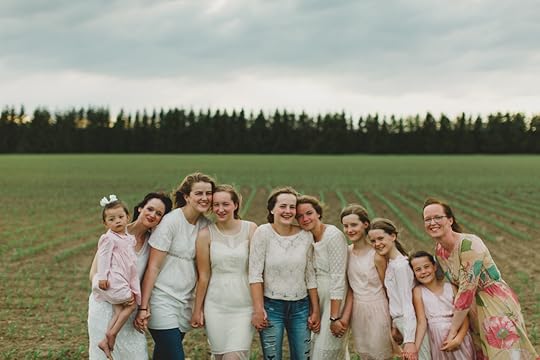 Joy Prouty
Joy Prouty Joy Prouty
Joy Prouty

I open my Bible and I underline it right there in the Word of God: That nation of Israel did not descend from one man alone, from one sole patriarch, but the nation of Israel descended from a woman too, from a matriarch too, and the nation of Israel was born of two parents, Abraham and Sarah together, who raised more than a family, but they were leaders who together birthed a people, built a society, blessed the world with the Messiah.
There was a national mother and there was a covenant mother — and we direly need faith mothers and we direly need church mothers, and this is not about whether women should preach to men or have authority over men — this is ultimately about God clearly calling women to be co-labourers in the Kingdom, to preach the Gospel in everything they do, to be mothers of the faith — and if you send them home, how many will fail to ever find their way Home?
“Whoever tells the church mothers to go home are homewreckers in our Father’s church.”
Whoever tells the church mothers to go home are homewreckers in our Father’s church.
As Spurgeon said, “It is no part of the business of Christ’s minsters to modify the truth which He has entrusted to them,” and open The Truth and Sarah, Miriam, Deborah, Hannah, Abigail and Esther and Huldah are all noted in God’s Book as prophetesses. Sarah was the mother of nations, Deborah served the entire nation of Israel as a notably wise judge, (Jud. 4), and Esther prayed and fasted and risked her life to bravely come before the King of Persia to intercede to save the nation of Israel. (Est. 4-5).
If, like Spurgeon said, “The happiest of all Christians are those who never dare to doubt God, but to take His Word simply as it stands,” then let all the church mothers stand happiest of all, taking their place in a long line of church mothers, taking God at His Word because His Word tells the story of women having spiritual giftings, given by God, to be part of God’s story in the world right now.
“It is always a lie from the pit that tells you that your gifts aren’t good enough to be given.”
It is always a lie from the pit that tells you that your gifts aren’t good enough to be given.
What will keep too many from doing much good — is caring too much what others think.
*******
When I track the footsteps of God through the Holy Land, I find myself looking at where the Temple stood — and seeing, right there, the tomb of Huldah.
Not the tomb of Jeremiah, not the tomb of Zephaniah, the only other two prophets to the nation of Israel living at the same time, but the tomb of the prophetess who even the King Himself sought out. No graves are even allowed in the Old City of Jerusalem — but the Tomb of Huldah, The Prophetess, right alongside the Tombs of the Kings of the Davidic Line, is so deeply revered, it’s never been disturbed.
A church mother may now rarely be mentioned even in passing, but God assured that even her passing is memorialized forever — at the holiest place on the planet.
“Even when church mothers go home to their eternal rest, their story eternally strengthens the rest of the church.”
Even when church mothers go home to their eternal rest, their story eternally strengthens the rest of the church.
Sure, there are some who wonder if King Josiah only sent his 5 top men to Huldah instead of Jeremiah, because they hoped that a female prophetess would give a softer, spineless, sanitized word from God.
But three times Huldah says, “Thus says the Lord,” because the woman doesn’t bandy about her own words — the woman speaks on behalf of God. Because she knows God’s Word.
The woman prophetess did not change the Word, or twist the Word, or minimize the Word, or water down the Word, but the woman of God served up the word of God fearlessly to the king of the nation of Israel, to guide the entire nation of Israel because the people God have always needed faith mothers.
“There are women who don’t have to go home, because they are already home in Christ, and know they are sent in countless ways so more will come Home.”
And there are church mothers who stand with Martyn Lloyd-Jones imploring, “The church should always be under the Word — and should be always reforming herself according to it…” and who nod with the great theologian when Lloyd-Jones exhorts: “A particular verse must never be interpreted in such a way that it does not fit in to the whole body of truth.”
And God wanted the Word of Truth to record for all time the faithfulness of the women: Phoebe was a servant in the church, ministering right alongside Paul (Rom. 16:1-2), that Euodia and Syntyche were gospel co-laborers with Paul (Phil. 4:3), and Junia was an apostle, called out by Paul as outstanding among the apostles (Romans 16:7).
There are women who don’t have to go home, because they are already home in Christ, and know they are sent in countless ways so more will come Home.
There are women of faith who may be glossed over, but power-dulled minds can’t dim the brilliance of a woman’s Christ-infused life.


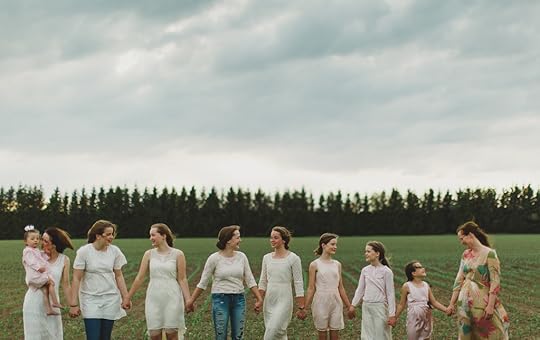 Joy Prouty
Joy Prouty



There’s no erasing a woman whose life tells a good story. There’s no erasing a woman whose life tells His story.
“There’s no erasing a woman whose life tells a good story. There’s no erasing a woman whose life tells His story.”
And? When I stood there in Old Jerusalem, before the Tomb of Huldah, The Prophetess, with more of His story burning in my bones, I thought of how two of the five gates you have to pass through on your way to the sacred Temple Mount itself are known as the Huldah Gates.
Gatekeepers may try to send women away, but God makes women a gateway for many on the way to finding the Way.
When I stood in that old church last week and heard from my friend, Trillia, from His Word how God made a woman a mother of nations, a partner of the covenant, a prophetess of His Word, it’s like you could feel hope birthing…
When a woman know she’s called, no one gets to call her anything that matters more than Him calling her His.

October 21, 2019
The Difference Between Being Right & Being Loving
Luke Goodrich is a lawyer who has won four United States Supreme Court cases related to religious freedom. What I appreciate most about his life and perspective, though, is how he constantly turns us back to Scripture. In a time when answers can seem all too clear in our own minds, Luke reminds us of the variety of ways God used His people in the Bible. As Luke says, God didn’t create us to win every argument, He created us to be like Christ. It’s a grace to welcome Luke to the farm’s front porch today….
For four generations, the Stormans family owned a small grocery store and pharmacy in Olympia, Washington.
One day the family received a phone call asking why their pharmacy didn’t carry the morning-after pill, a controversial form of contraception that may cause early abortions.
Upon researching the drug, the family learned it could prevent a newly formed human embryo from attaching to the wall of its mother’s uterus, thus, in their view, destroying a human life.
Because the family was committed to caring for all human life, they decided they couldn’t sell the drug. Instead, their employees would refer customers to nearby pharmacies that sold it.
That turned out not to be good enough for local pro-abortion activists. They protested the store, yelling at customers and disrupting traffic.mThey filed complaints with the state. And they ultimately convinced the governor to pass a new regulation making it illegal for pharmacies to refer customers elsewhere for religious reasons—even though pharmacies could still refer customers for nonreligious reasons.
The Stormans family then faced a difficult choice: either sell the morning-after pill, which could destroy a human life, or close the pharmacy, which would destroy their livelihood.
Because they didn’t want to do either, they filed a federal lawsuit asking the courts to protect their religious freedom.
I had the privilege of representing them.
In response to the lawsuit, the state claimed it wasn’t targeting the Stormans; it was simply trying to ensure that all citizens had access to medication.
But at trial, this argument was exposed as a sham.


 Joy Prouty
Joy Prouty Joy Prouty
Joy Prouty Joy Prouty
Joy ProutyWithin a five-mile radius of the Stormanses’ pharmacy, over thirty pharmacies sold the morning-after pill. It was also available at nearby physicians’ offices, government health centers, hospital emergency rooms, and on the internet with overnight delivery.
By contrast, the state’s own documents showed that it was targeting pharmacists because of their religious beliefs.
The governor appointed a new chairman of the pharmacy board, who stated that “I for one am never going to vote to allow religion as a valid reason for a [pharmacy] referral.”
The chairman also said he viewed religious referrals as an “immoral” form of “sex discrimination” and would recommend prosecuting them “to the full extent of the law.”
Based on the evidence, the trial court concluded there was “no problem of access to [the morning-after pill] or any other drug before, during, or after the rulemaking process.” Instead, the purpose of the regulation was to “bar pharmacists and pharmacies from conscientiously objecting.” This, the court said, showed that the regulation targeted pharmacists because of their religion, rendering it unconstitutional.
The Stormans family won.
I wish I could say that was the end of the story, but it wasn’t.
The state appealed the ruling to the Ninth Circuit, which ignored key facts and rejected the Stormanses’ claims. We then appealed to the US Supreme Court. But just weeks after we filed our appeal, Justice Scalia died, leaving the court short one member. Our appeal received three votes—one shy of what we needed. We lost the case.
As American Christians prepare for potential violations of religious freedom, we often appeal to American law: Is it lawful to take away religious freedom when it is enshrined in the Constitution?
But religious freedom isn’t rooted in the American Constitution. It goes much deeper than that.
It’s rooted in God’s original design for humanity—in the way God created us and in the way God relates to us.
“If God Himself doesn’t coerce us in our relationship with Him, how much less should the government?”
Simply put, human beings are created for relationship with God, and God desires relationship with us.
But a relationship with God must be entered into freely. So God Himself has given human beings freedom to embrace or reject Him.
We see it most clearly in Jesus.
He is God in the flesh, who came to reestablish relationship with His people, yet “He came to his own, and His own people did not receive Him” (John 1:11). “He was despised and rejected by men” (Isaiah 53:3).
In one poignant scene, after a hard teaching, “many of his disciples turned back and no longer walked with him” (John 6:66). But Jesus never forced anyone to return, because a loving relationship with God can never be coerced. If it is coerced, it is no longer love.
If God Himself doesn’t coerce us in our relationship with Him, how much less should the government?When the government tries to do so—when it prevents us from freely relating to God—it is elevating itself above God and violating the created order.
We need to remember, though, how Scripture illustrates the radically different way Christians are called to approach persecution.
“The goal is not to win but to be like Christ.”
The goal is not to win but to be like Christ.
That’s why there is no formula for responding to religious freedom conflicts.
As Christians, we often want simple answers, but rather than offering simple answers, Scripture calls us to know God and teaches us that there is much more going on, because there is a much bigger story of God bringing His kingdom into this world.
Thus, as we face our own religious freedom conflicts, God’s kingdom purposes should inform everything we do.
Religious freedom is not a tool for maintaining Christian cultural dominance.
It is not a luxury that can be abandoned lightly.
It is not a pretty good idea that we don’t need to think much about.
Rather, religious freedom is a basic issue of biblical justice, rooted in the nature of God and the nature of man.
The very definition of a violation of religious freedom: when the government uses its coercive power to interfere in the relationship between God and man. When the government does that, it’s violating the created order and perpetrating an injustice.
And the reality is: Christians throughout history have suffered terrible persecution. Yet Scripture calls all of us to “rejoice in hope” (Romans 5:2), whether we live in North America or North Africa.
Where does that hope come from? That hope is not rooted in any human institution. It is not rooted in fair laws, favorable election results, or friendly Supreme Court justices.
It is rooted in a person: Jesus Christ.
He has already conquered every enemy we’ll ever face, and He has promised us an imperishable inheritance in heaven. So even when we’re “grieved by various trials,” we still “rejoice with joy that is inexpressible” (1 Peter 1:6–8).
This doesn’t mean we become Pollyannas, pretending everything is good when it isn’t. Nor do we become Nero, fiddling indifferently while the world around us burns. Instead, we fully acknowledge the evil in the world even as we hope in the Savior of the world and join in His work in the world.
We worship a Savior who is a realist. He told us, “In this world you will have trouble” (John 16:33, NIV).
And when it comes to religious freedom, we will have trouble. But that is not cause for alarm, because we worship a Savior who is also triumphant.
The One who said “In this world you will have trouble” also said “Take heart! I have overcome the world.”
Luke Goodrich is a religious freedom attorney at Becket who has won precedent-setting cases in courts across the the USA, including four cases in the United States Supreme Court.
His book Free to Believe: The Battle over Religious Liberty in America explores our questions about what it means to have religious freedom and why it matters. Many Americans are concerned about rising threats to religious freedom. They feel the culture changing around them, and they fear that their beliefs will soon be marginalized as a form of bigotry. Others, younger Christians in particular, are tired of the culture wars, and they wonder whether courtroom battles are truly worthwhile, or even in line with the teachings of Jesus.
Luke offers us a reasoned, balanced, gospel-centered approach to religious freedom. He draws on biblical truths as he invites us to respond to our changing times with both confidence and grace.
[ Our humble thanks to Multnomah for their partnership in today’s devotion ]

October 19, 2019
Only the Good Stuff: Multivitamins for Your Weekend [10.19.19]
Happy, happy, happy weekend!
Some real, down in the bones JOY to celebrate today! Links & stories this week 100% guaranteed to make you smile a mile wide & believe like crazy in a Good God redeeming everything — and that there’s love everywhere & for ((you))!
Serving up only the Good Stuff for you & your people right here:
Kyle Fredrickson
Kyle Fredrickson
Kyle Fredrickson
deep breathes and remember that great days happen wherever there is gratefulness
the power of our words:
He Got High and Broke Into a Church. Months Later, He Was Baptized There.
“You can’t preach something for 50 years without practicing it, especially in front of your whole church..”
so who knew?!? The largest land mammal, elephants have this…
tears: he went to see his mom first
Jasmine Carey: Instagram
Jasmine Carey: Instagram
Jasmine Carey: Instagram
Photographer Shares Majestic Deep Dives with Big Beautiful Whales
a look into one of the first aerial photographs
How fast are you aging? Midlife walking speed may show state of brain and body
Gait speed is fascinating because it offers so many clues about a person’s health, even at a younger age, experts say.
fascinating – 50,000 square meters of hedges to maintain? come see how they do it
He’s been in a wheelchair all his life. What does teach boys about running? love this
loyalty goes a long, long way
kapuschinsky.com / Instagram
kapuschinsky.com / Instagram
kapuschinsky.com / Instagram
can’t get enough of this one… & could not agree more:
cheering wildly: A Promise These 3 Doctors Made in High School? Is Helping Kids Today
beautiful act of unexpected kindness: “I think it shows that there are lots of good people in this world…and this is what we should be applauding people for.”
glory, glory, glory
Yrahisa Mateo
this doctor? chooses to return to his own impoverished community bringing health and the hope of the gospel
Beyond grateful for the saving work of Compassion International
It would be a joy to have you join us!
The holidays beckon us home. Whether we celebrate with friends, family or both, our homes can hold more than guests: they can tell stories of justice and empowerment.
This one-of-a-kind live webcast event will be filled with inspiration and fun, practical tips for incorporating Fair Trade items in your home from our panel of speakers. These individuals are best-selling authors, influential bloggers, home stylists, musicians, impactful leaders in the Fair Trade world, and more!
Our goal for this evening it to create a live webcast event where individuals and groups of people can come together in Christ, rally around a bigger cause, and use their purchasing power and influence to change the lives of marginalized women around the world.
veering off the beaten path… now what can we go do?
can you even?!? It’s a baby boom at this fire department…yup, NINE babies — seven girls and two boys — were born to members between March and July
because everyone has an ability to be life-changing to others
simplyswenkalife / Instagram
marehoops_warriorlife / Instagram
In sixty vulnerably stories, the tender invitation of The Way of Abundance moves you through your unspoken broken — into the abundant life.
Pick up your own Way to Abundance & start your journey to the abundant life
Conversion to Christ — and Joy
Foundations of Christian Hedonism
on repeat this week: Living Hope
…as you look into the coming week, remember — there will still be love when the worst happens and when the hope doesn’t happen, there will still be love when everything’s crumbling and there will be enough love to rebuild, there will be enough love to keep breathing, to keep believing, to keep being and being brave.
Fear can be what we feel — but brave is what we do.
There’s enough Brave in us to believe that though the world is broken, there is light getting in…
[excerpted from our little Facebook family … come join us each day?]
That’s all for this weekend, friends.
Go slow. Be God-struck. Grant grace. Live Truth.
Give Thanks. Love well. Re – joy, re- joy, ‘re- joys’ again
Share Whatever Is Good.

October 16, 2019
An Invitation to Empathize
I first met Tasha Morrison in 2014 at the IF:Gathering and since then have been able to spend time with this brave teacher, leader, and unifier around the world. Whether sharing the stage locally or serving and learning together in places like Uganda and Rwanda, Tasha’s heart for biblical justice is changing the church. She’s a kindred soul I’m thankful to also call friend. With bravery and genuine hope, Tasha calls us to something deeper and truer for God’s kingdom. It’s an honor to serve alongside her and to welcome Tasha to the farm’s front porch today….
Growing up, I felt a great divide between my mom and me.
We were emotionally detached and distant.
Things came to a head in college as I sat on my bed and tried to remember whether my mom had ever told me she loved me.
I knew she loved me, of course, but had she ever verbalized it? Looking back over my childhood, though I had everything I needed, I felt something was missing.
And because my dad was more verbally expressive, because he told me all the time how much he loved me, the lack of verbalization from my mom stood out even more.
“Why could she barely bring herself to hug me?”
Was something wrong with her? Was something wrong with me?
Why could she barely bring herself to hug me?
And why did her siblings and it difficult to express love too?
In college, as a new follower of Christ, I began to process my childhood. I acknowledged the things that were holding me back in my relationships with others, this issue with my mother being primary among them.
I began watching the interaction between my friends and their mothers, seeing how they expressed their love verbally and physically, and I wanted this sort of relationship with my mom.
As time passed and I grew in spiritual maturity, I began expressing love to my family members.
I regularly told my dad I loved him and made sure my brother understood how much I loved him. I told my grandmother and grandfather.
But what about my mother? What was it about our family dynamic that kept me from telling her I loved her?



 Tasha Morrison
Tasha Morrison





Months passed and I eased more and more into the practice of expressing love.
One day I decided I was going to tell her that I loved her.
I dialed her number and, heart pounding, waited for her to answer. I told my mom how much goodness was waking in my heart.
I was meeting amazing friends, I told her, and being exposed to the true love of Jesus.
She listened and then, almost without warning, turned the conversation. She told me of all the hardships she was experiencing at the time.
My grandmother, my mua, was dying, and it was a difficult time. Mom was heavyhearted and sad.
I listened as she poured out her heart, and then I told her that God loved her.
Then I told her I loved her too. She didn’t say it back to me that day, but it was okay. I said what I needed to say.
My mom never left my mua’s side during her last days in the hospital, and when my grandmother finally passed, my mom experienced deep sorrow and pain.
She also experienced other emotions.
She remembered Mua with joy. She laughed at the good times they had shared. She walked through these emotions day after day, and in the months after my mua’s death, something unlocked. Her lamentation brought Mom a new kind of freedom and peace.
One day as we were riding in the car together, my mom began telling me details about her childhood, details I’d never heard.
She’d never respected her father, she said. He’d cheated on my mua several times. He had verbal and physical altercations with my mother, one of which resulted in her running away when she was sixteen years old.
And though my grandparents had matured and settled down by the time I came of age, my mom’s wounds were never really healed.
“The acknowledgment of the harm was the beginning of the healing balm my mom so desperately needed.”
She had never called her father Dad but instead had called him by his first name, Troy. The reality was, with my mua gone, there was very little to balance out the memories of her childhood pain.
My grandfather was a military man. His educational opportunities were limited as a child. (Black people in his area of rural North Carolina had limited access to school past the eighth grade because of Jim Crow laws.)
Wanting to broaden his horizons, he lied about his age, joined the army, and became a military mechanic.
In the service, his all-Black unit was segregated from the White servicemen. Blacks were treated differently and paid less.
He endured humiliation, shame, and daily prejudice. He was beaten down, physically and emotionally, and this took a toll on his mental health, a toll that lasted long after he left the military.
It affected every relationship in his life. Hurt people hurt people, they say, and this was true of my grandfather.
All the anger, all the hurt and abuse my grandfather experienced, he transferred to my mother.
My mom never gave up on pursuing a relationship with her father.
She told me of a conversation she had with my grandfather after my mua’s passing, a conversation in which he acknowledged the harm he’d caused. He apologized for how he’d treated my mom, for the terrible things he’d said to her.
He apologized for not being there when she needed him the most. He apologized to my then thirteen-year-old brother too.
The acknowledgment of the harm was the beginning of the healing balm my mom so desperately needed.
“Acknowledgment and lament have led me into the healing process.”
In considering my mother’s story, I began to realize that the way my grandfather had been treated, the way he was subjected to prejudice and hate, had filled him with rage and anger.
He’d lashed out at my mother in that anger, and as a result, they’d never connected emotionally. That emotional disconnection between my mother and her father informed the way she parented; it led to our own disconnection.
In understanding her past for the first time, I began to acknowledge the emotional difficulties in my family.
I began to lament my family history.
As acknowledgment and lament took root, I began to feel great empathy for my mom. Understanding the hurt and harm she experienced, not only as a child but also as an adult, has helped me become a better daughter and friend and has helped me identify with and relate to her.
It’s taught me how to avoid creating unhealthy tension by placing expectations on her she isn’t emotionally able to live up to.
Acknowledgment and lament have led me into the healing process.
In order to move from awareness to acknowledgment, we must first be brave enough to accept the historical truths and modern realities.
“We have to have the hard conversations so we can move to a place of deep lament.”
We can’t shy away from the conversations just because they’re uncomfortable or awkward or unpleasant.
We can’t change the subject because issues of racism make us feel bad.
Instead, we have to have the hard conversations so we can move to a place of deep lament.
To lament means to express sorrow or regret.
Lamenting something horrific that has taken place allows a deep connection to form between the person lamenting and the harm that was done, and that emotional connection is the first step in creating a pathway for healing and hope.
We have to sit in the sorrow, avoid trying to fix it right away, avoid our attempts to make it all okay.
Only then is the pain useful.
Only then can it lead us into healing and wisdom.
Tasha Morrison works with organizations — small and large companies, churches and non-profits — and high-impact leaders who realize their efforts toward diversity and inclusion are falling short. Do you want to lead from an authentic place? Are you ready to audit your organization, take time to listen and learn, and develop a strategy for creating an authentically diverse organization? She will be your guide.
A leading advocate for racial reconciliation offers a clarion call for Christians to move toward relationship and deeper understanding in the midst of a divisive culture. Be the Bridge is a guide that helps readers deepen their understanding of historical factors and present realities, equipping them to participate in the ongoing dialogue and to serve as catalysts for righteousness, justice, healing, transformation, and reconciliation.
I could not agree more: it’s time for Christians to become the leaders in the conversation on racial reconciliation.
[ Our humble thanks to Waterbrook for their partnership in today’s devotion ]

October 14, 2019
More Than a Conversation: Discovering the Power in Life-Giving Words
One of the things I enjoy about Mark Batterson’s writing is his ability to help me think about “ordinary” things in new ways. Such as words. I have always been a “word person,” yet I still have a lot to understand about how powerful words can be. They truly have the power of life and death in them—whether they are on a page, on a screen, or spoken to a neighbor, a child, or a stranger. Here Mark challenges us to ask, What will the transcript of my life tell about whether I lived a life of blessing or curse? It’s a grace to welcome Mark to the farm’s front porch today….
During a fragile time in my teenage years, I was given the gift of life-giving words.
I was kneeling at an altar when a missionary put a hand on my shoulder and started praying over me.
Then his prayer turned prophetic: “God is going to use you in a great way.”
It was only one sentence, but I’ve held on to those words through thick and thin. And I’ve tried to flip that blessing by speaking life-giving words to others.
One of the most powerful blessings you can bestow on another person is well-timed words.
Remember the woman who broke open her alabaster jar of perfume and anointed Jesus? Remember the way the Pharisees and the disciples criticized her?
Jesus counteracted their criticism with the gift of life-giving words: “Wherever the gospel is preached throughout the world, what she has done will also be told, in memory of her” (Mark 14:9).
Can you imagine the way those words buoyed her spirit the rest of her life?
“It’s our job to declare God’s praises and pronounce God’s blessings.”
Those are the kinds of words you have tattooed on your body or inscribed on your tombstone! Jesus blessed her with prophetic words, and they were fulfilled one more time with your reading of them just now.
As children of God and followers of Christ, we assume the mantle of the Old Testament priests who administered the blessing. We are part of a royal priesthood (1 Peter 2:9)!
It’s our job to declare God’s praises and pronounce God’s blessings.
Blessing and cursing are not compartmentalized biblical concepts. They are two very different ways of life, two very different ways of treating people.
If the transcript of your life were read aloud, what would your words reveal?
How do you talk about people when they aren’t present?
Do you berate them or brag about them behind their backs?
How do you talk to people when they’re present? Do you put them down, or do you look them in the eye and compliment them to their faces?
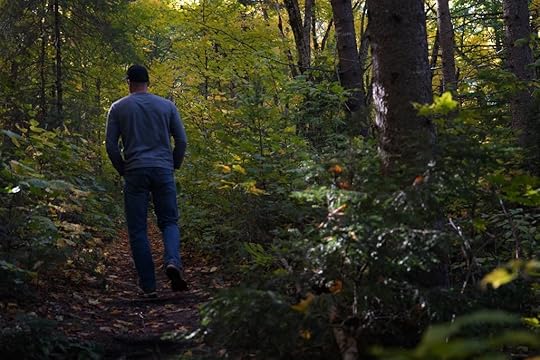







I have a three-inch-thick file that is filled with kind notes and thoughtful letters that I’ve received from readers of my books and from people I have the privilege of pastoring. Why do I keep them? Because every word of encouragement is a keepsake!
“Every word of encouragement breathes new life into me.”
Every word of encouragement breathes new life into me.
In light of the power of words in our lives, does it come as any surprise that the Enemy of our souls is called the Father of Lies and the Accuser of the Brethren?
He speaks lies that can suck the life out of us.
How do we overcome his lies and his accusations? According to the writer of Revelation, we overcome them “by the blood of the Lamb and by the word of [our] testimony” (Revelation 12:10–11).
At first glance, one of those things is not like the other! I would not put my testimony on par with the precious blood of Christ, but it’s one key to overcoming the Enemy.
Your testimony of God’s work in your life has the power to set other people free!
That’s how powerful your words can be.
“Your testimony of God’s work in your life has the power to set other people free!”
How? Well, if God did it for you, He can do it for them. And if God did it before, He can do it again.
A number of years ago, I hiked the Inca Trail to Machu Picchu. When we got to Dead Woman’s Pass, I had a throbbing headache caused by oxygen deprivation.
At that elevation, the atmosphere has 37 percent less oxygen.
Fortunately, our guide pulled out a can of pure oxygen. As I inhaled, the headache went away.
Life-giving words are pure oxygen.
The right words at the right time can change everything.
They can even change a life.
Mark Batterson serves as lead pastor of National Community Church in Washington, DC. NCC also owns and operates Ebenezers Coffeehouse, The Miracle Theatre, and the DC Dream Center. Mark holds a doctor of ministry degree from Regent University and is the New York Times bestselling author of 17 books, including The Circle Maker, Chase the Lion, and Whisper. Mark and his wife, Lora, have three children and live on Capitol Hill.
Mark’s latest book, Double Blessing: How to Get It. How to Give It., calls us to give and receive God ultimate blessings: God with us, God for us, and God in us. Mark Batterson believes the key to radically increasing your faith, joy, and abundance can be found in these three words: Flip the blessing.
His discovery started with a simple experiment. Whenever Batterson received a blessing, he would give a similar blessing away. If someone paid him a compliment or gave him a gift or went out of their way to help him, he would return the favor by doing something similar for someone else.
[ Our humble thanks to Waterbrook for their partnership in today’s devotion ]

October 12, 2019
Only the Good Stuff: Multivitamins for Your Weekend [10.12.19]
Happy, happy, happy weekend!
Some real, down in the bones JOY to celebrate today! Links & stories this week 100% guaranteed to make you smile a mile wide & believe like crazy in a Good God redeeming everything — and that there’s love everywhere & for ((you))!
Serving up only the Good Stuff for you & your people right here:
Jessica Walker
Jessica Walker
Jessica Walker
Jessica Walker
Jessica Walker
cannot get enough of the extraordinary she captures day after day
he’s raised nearly $8K to pay off high school lunch debt for students
“Children should not be worried about their account balances; they just need to focus on school and getting food to feed their growing minds and bodies”
reunions like these? never get old
inspiring: An All-women Delta crew flies 120 girls to NASA headquarters to inspire female aviators
this view from the top? extraordinary
Why Some People Become Lifelong Readers:
A lot rides on how parents present the activity to their kids
her talent has stolen so many hearts who have stepped up to help
October is Fair Trade Month (Deal)
“One amazing way to do something simple and tangible is choosing to purchase with a purpose. Fair Trade is life-changing.”
faith, family, football – in that order
Go and Make Disciples. But First, Stop.
an special teacher who stepped up in a huge way
Seven Prayers for Those You Love
“I would not trade where I am today to have my vision back”
Known as the Blind Cook, Christine started losing her sight right around the time she was teaching herself how to cook.
Photo: Piyamary Shinoda
Ending the Terror of Bride Kidnapping
Beyond grateful for the saving work of Compassion International
Even in cultures steeped in traditions that dictate otherwise, Compassion, in partnership with the local church, is boldly upholding children’s human rights and ensuring they are known, loved and protected.
good words: Rescue Story
one final thank you… a most special gift
great reminder for all of us
Joy Prouty
Post of the week from these parts here
…yeah, I’ve been raw with begging God and I’ve wrestled hard with the questions. And when the miracle doesn’t come like I hoped?…When things don’t make sense and I feel discouraged?
Here’s what unexpectedly tilts everything:
When You Pray But the Miracle Doesn’t Happen
He shares his story of his life from a criminal to a respected chef – and the power of potential in all of us
weelittlehouse
melissag99
How do you live a genuinely abundant life?
In sixty vulnerably stories, the tender invitation of The Way of Abundance moves you through your unspoken broken — into the abundant life.
Pick up your own Way to Abundance & start your journey to the abundant life
finish the week strong: Best ‘Fight Forward’ song
…right about now, the world sure could use a little Good News today, a little good-seeing, a little beauty-seeing, a whole lot of grace-seeing. So just in the midst of it all today, let’s cling to this: Grace says you don’t have to try to measure up to anyone else because Jesus came down — and He measures you as good enough, as worthy enough, as loved more than enough.
Grace embraces you before you prove anything, and after you’ve done everything wrong.
Every time you fall down today, at the bottom of every hole is grace.
Grace always waits in broken places.
That’s the tragedy and the comedy of life: Grace is grace when it gives us what we’d never ask for but always needed, and moves us to become what we always wanted. But hardly ever the way we wanted.
For those who can see, the world’s beauty outweighs its burdens, its grace greater than its grime.
Focus today: Jesus is enough.
[excerpted from our little Facebook family … come join us each day?]
That’s all for this weekend, friends.
Go slow. Be God-struck. Grant grace. Live Truth.
Give Thanks. Love well. Re – joy, re- joy, ‘re- joys’ again
Share Whatever Is Good.

Ann Voskamp's Blog
- Ann Voskamp's profile
- 1369 followers


